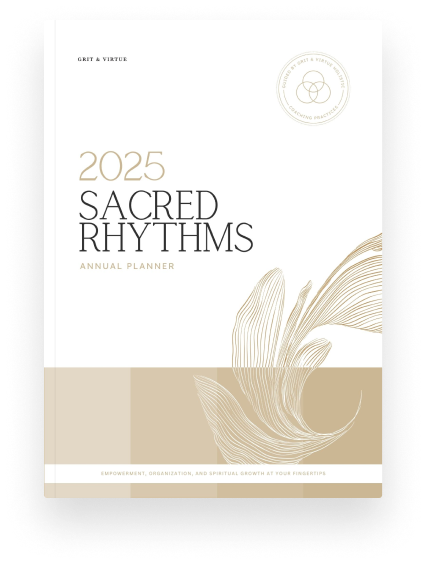It was 4:38 in the morning when I heard the first chirp. I opened my eyes and held my breath, hoping against hope that it wasn’t what I thought it was. But a few seconds later, another loud chirp had me reaching for my glasses and hurrying downstairs where we keep the extra smoke detector batteries. Unable to fall back to sleep, I had my first sip of coffee before 5 AM.
The morning did not go well. I moved about in a fog, dimly aware of my children. By lunchtime I was ready for a nap. At my age, though, intentions only go so far and I couldn’t count on my mind to quiet itself long enough to snooze. We humans have a remarkable ability to control our lives but sleep is one area over which we have little control. If we did, there’d be no need for prescription sleeping pills, and no need to sleep train our babies and toddlers. So I did what I could to induce sleep. I closed the blinds. I turned on the fan. I wore my sleep mask over my eyes and climbed under the covers. There was nothing left to do but to wait for sleep to come.
I find that we behave in a similar way when we seek to hear from God. When our intention is to listen for His still, small voice, we have little control over when or where He will speak to us or whether He will speak to us at all.
All we can do, much like when we want to sleep, is to create the right conditions in which we will be likely to hear from God.
Silence and Solitude
In our busy and hurried world, creating space for silence and solitude is a necessary precursor to hearing from God.
Can we un-hurry our hearts to focus on what God might want to say to us? Can we respond to the Spirit’s invitation to become still and silent in order to gain a deeper awareness of God’s presence? Silence feels counter-cultural even in Christian circles. When time for silent prayer is given at church on a Sunday morning, it never lasts for more than a few seconds. Silence is uncomfortable for us, who are so accustomed to doing, even in our faith. In my own life, I know it’s harder to be still and let God take the initiative than it is to take over the reins.
Turning to the Bible
Reading the scriptures regularly is another way we can hear from God. Whether we choose to read several chapters at a time, or we choose to listen to a Bible app on the go, or we sit with just a few verses upon which to meditate or study deeper, we can catch a glimpse of God. We come to the scriptures to know God’s heart more fully.
Most likely the Bible is not going to tell you where you should go to college, or if you should move across the state and switch careers. But it will reveal to us who God is and what He is like through His movement in the Old Testament and the life of Jesus in the New.
When we seek to hear from God, we must be able to recognize His voice. And I can think of no better way to train our ears towards His voice than to read the words He’s given us.
Creatures and creation
Another way to create the right conditions to hear from God is to pay close attention to the people and things around us. Paul tells us in Colossians: “For in him all things were created: things in heaven and on earth, visible and invisible, whether thrones or powers or rulers or authorities; all things have been created through him and for him. He is before all things, and in him all things hold together (Col. 1:16-17, NIV).
When we persist in believing that God is only to be found behind the pearly gates of heaven, what revelation are we missing all around us? If Jesus walked this Earth as the embodiment of God, can’t He use the things and people of this world to speak to us? Not only did God speak to Moses through a burning bush and to Elijah through a whisper in the wind, but he also gets our attention through the song of a cricket, the roaring of ocean waves, the smile of a stranger, the sink full of dishes.
When we understand that God is ever present with us—in every moment mundane to marvelous—our lived experience becomes sacred, a chance to meet God in all things. We become more open to what God might be telling us throughout our days.
Prayer
Prayer is one powerful way we enter into communion and relationship with God. During prayer, we are free to bring our whole selves before God—every joy, disappointment, longing, and resentment—and know that by God’s grace and mercy, we are His beloved.
Richard J. Foster describes it this way:
“Prayer is—loving conversation with the One who has invited us to His embrace.”
More than just coming to God when we need something, it is stepping into a divine conversation already happening, with hands and heart and ears wide open, ready to participate with our own repentance, praise, and petitions, and ready to receive what He may have for us. Such a posture requires humility, honesty, and space for silence and solitude. Growing closer to God and deepening our faith means making time for prayer.
But prayer is also the reorientation of our hearts toward God, something that is available to us every minute of our busy days. Saint Therese of Lisieux puts it this way:
“For me, prayer is a surge of the heart; it is a simple look turned toward heaven, it is a cry of recognition and of love, embracing both trial and joy.”
Perfect Conditions
If God did not want to be known, did not want to reveal himself to us, we wouldn’t have the Bible available to us, we would not have his Holy Spirit in us. He would not have sent Jesus to us. The conditions are all there for us to hear from God and to be in relationship with Him. Just like the first step to falling asleep is to recognize our fatigue and our need for rest, we must acknowledge our need for God and seek out His ever-loving presence.
~~
Inspired by what you just read? We invite you to not stop there but keep the conversation going by taking a moment to work through the following journal prompts.
-
When you consider sitting in silence and solitude, what do you notice stirring up in your heart? Are you comfortable with silence and solitude, or do you feel like you need to fill them in with sound and other people? Does your response to silence give you any insight into the condition of your heart?
-
How do your habits and daily realities affect your willingness or ability to hear from God?
-
Sarah says in her article “During prayer, we are free to bring our whole selves before God—every joy, disappointment, longing, and resentment—and know that by God’s grace and mercy, we are His beloved.” Is there anything you need to bring to God today? Pour it out, and know you are His beloved.
P.S. Did you know we sell the best journals for your quiet time with God? You can check out the Grit & Virtue Journal Collection here!
Enjoyed it? Share it!
Sarah K. Butterfield
Sarah K. Butterfield is the author of "Around the Clock Mom: Make the Most of Your God-Given Time," a resource filled with practical wisdom and biblical inspiration to help busy moms steward their time faithfully. As a speaker, ministry leader, and educator, she has a heart for empowering women to grow in their faith! She and her husband and two boys live in San Diego, where she loves getting lost in a book, and overindulging in ice cream.
But wait, there's more...



















